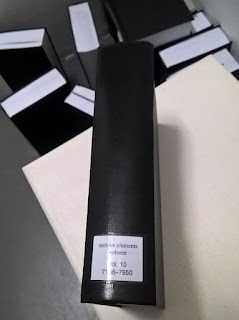It does not give answers about our current situation, but it puts some things in perspective. I like its musings on political philosophy. Something resonates with our times. See the quotes below:
Practical politics
They [the city officials] have little concept of broad social problems and social movements. They deal with each other, and with the problems of the community, on a person-to-person, individual basis. They shrink from striking out in new directions, have no interest in blazing new trails, abhor radical solutions to problems, and, in general, resist activism of any sort about anything."I got two rules," 29th Ward Committeeman Bernard Neistein confided when asked how he had operated so successfully in politics in Chicago for most of his adult life.
- The first one is: Don't make no waves.
- The second one is: Don't back no losers.
Those who hold power - those who seek power
[...] Those who hold political power are primarily interested in keeping it, while those professionals who are out of office and interested in office are primarily concerned with taking power from those who hold it. Outside these two groups of activists stands the great mass of the population, which has neither the interest, the ability, nor the intestinal fortitude to engage in what Frank Kent called "the great game of politics." But in a democracy they must be wooed by those who seek political power.
The two groups of activists, those who hold power and those who seek it, traditionally employ different tactics in dealing with the electorate.
Those who seek power must make waves, must raise issues, and must arouse the electorate in order to remove from office those who hold political power. Those in office must keep the electorate quiescent, passive, and disinterested, since an aroused, interested electorate will usually react unfavorably toward those in office. How to keep the electorate quiet? Don't make no waves.
When power seekers get power - they become power holders
[...] when wavemakers and nonprofessionals become officeholders, they soon discover the elemental truth that the best and surest way to stay in office is to adopt the behavior patterns and philosophies of the non-wavemakers and professionals. For they, too, soon discover the truth that the professionals and non-wavemakers always knew - that there is no such thing as the public interest insofar as the electorate is concerned; that the private, self-interests of the various groups that compose the electorate must be appeased; and that this can best be done by appealing to those groups on a personal basis and by concerning oneself with those private interests rather than with broad social problems.
They also discover, after assuming office, that there is no such thing as "new politics" or "old politics," that if they want to stay in office there is something called "politics," a game that has been played since time immemorial by men called "politicians," and that it behooves them to join the ranks and play the game if they wish to survive.
Sources:
The book
Milton Rakove obituary
Milton Rakove obituary










